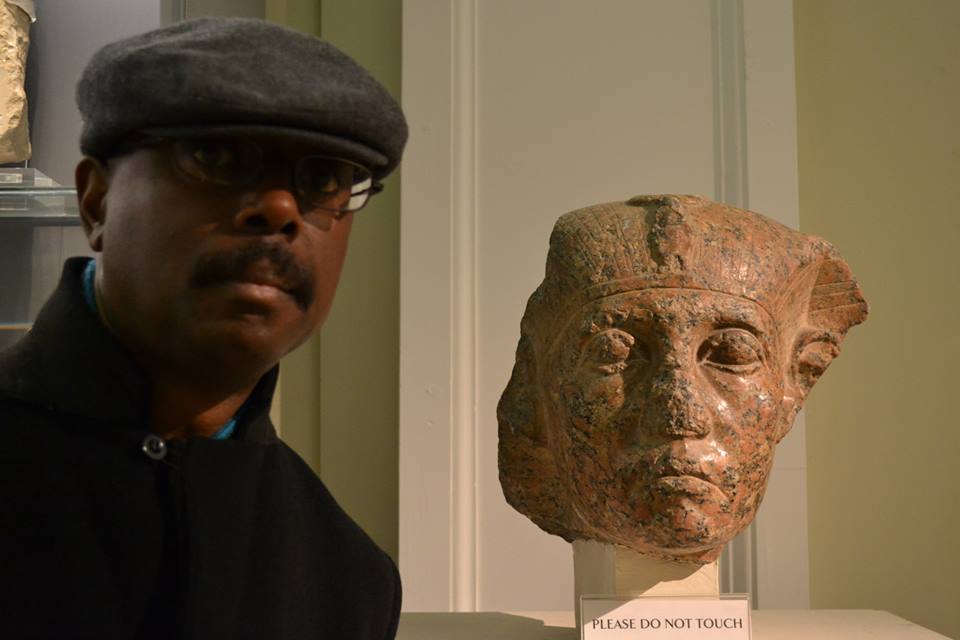1. When I was younger, like everyone else, I believe that Black people did not have any history and the only thing we contributed to world culture was to be everyone else’s slaves. I watched a TV series, Roots, and it convinced me that we were everybody else’s slaves and to be discriminated against by everybody else; and then the civil rights struggle which made us kind of equal. This was the version of history I believed until I read The Destruction of Black Civilization by Chancellor Williams.
2. Genuine humanity is demonstrated where individuals can share an authentic delight in human achievement. As the great Terence of Rome stated, “I am a man and nothing human is alien to me.” In this vein, one does not have to be an African American to delight in the profundity of Duke Ellington’s Diminuendo and Crescendo in Blue. One does not have to be Chinese to be impressed by the subtle and sophisticate teachings of Confucius. The true citizen of the world recognises things of value no matter where found or among whom it originated.
3. Young people, even if you educate them cannot change the Black community. You can put a young person through an educational program and then the moment they go home, if the parents are into foolishness, the parents will simply undo all the good work you’ve done. I believe the most important group of people to reach in order to fix the Black community is the adults because adults can make change and can do so overnight. If adults are empowered with historical information, this automatically empowers the youth.
4. The biggest hindrance to the Black community is poverty. Wherever Black people are, even when we live in a “first” world country we are exposed to a “third” world level of poverty and unemployment. It is therefore essential that someone has to teach Black people on how to make money. George Subira, an African American guru, said that one of the biggest problems with Black Studies is that we teach people history, which is good, but unless the poverty that most of us face is alleviated, we are not helping to the extent that we can help. What Subira teaches is a plan to get us off the plantation into our own businesses and those are the ideas I teach.
5. For Black people in Britain the economic strategies have to be different than for Black people in the USA, because one in six or seven Americans is Black. So African Americans form a nation, while Black British people form an ethnic group, as there are only about two million of us. Consequently, because of Black Britain’s fragmented nature, it is not something we can do collectively, it is something that has to be done individually. In recent years, there is an African American, Dr. Claud Anderson, who has come up with a brilliant program that if African Americans were to listen to him, they could really advance themselves and quite quickly. It’s a shame that his program could not be used in Britain because we have not got the demographic structure. The role that people off the plantation in Britain can do, is making sure we patronize the people who are trying to get off the plantation, so that their businesses become successful as soon as they start them up.
6. Many people assume that Black history is slavery and because of that assumption, they believe that to talk about Black history is to talk about a painful episode in their history. Now I always make it clear that the definition of Black history, I use, is Maulana Karenga’s definition, which is, “History is the record and process of people engage in struggle to shape the world in their image and interest.” Therefore, history is what we did to Africanize the world. Once you define history in this way, then slavery is not Black history, because during slavery Black people were not shaping anything, we were being shaped. Our history during that period is what we did to fight against it. Now what did Black people do to Africanize the world? We did quite a lot. When you put that “quite a lot” into perspective then the 500 years of slavery is actually a very small part of that story.
7. Nearly everything that exist in the modern world has its prototype in the ancient world. For example, the building we live in, the bed we sleep on. The only thing the modern world has that is not in the ancient African world is electricity and even that is debatable. They are controversial data on what appears to be a light bulb on an Ancient Egypt temple wall. We are still shaped by ancient African idea and they are still of value.
8. Most of us would associate having a swimming pool as an European idea. No one can deny that the ruins of Husuni Kubwa, the royal palace of Kilwa, built in the 1300s on the coast of Tanzania have an octagonal swimming pool, that you can still see. People can google the image!
9. You need to know the truth of history. And you need to learn the lies better than the liars! When you are quoting sources, quote European sources, to challenge the debunkers.
10. Some people would say that what we need as a community is to be making money, not Black history. However, if you look into our history, the richest person in the whole of human history is Mansa Musa. They estimated that he had the equivalent of £249 billion or $400 billion US, and he made this fortune between 1312 and 1327. They also estimated that his fortune was three times bigger than Bill Gates. Who would have thought that an African king in the 14th century had achieved this!
Source:
https://kentakepage.com/interview-with-robin-walker/
https://kentakepage.com/when-we-ruled-the-ancient-and-mediaeval-history-of-black-civilisations/
To learn more about Robin Walker, visit: http://www.whenweruled.com/



